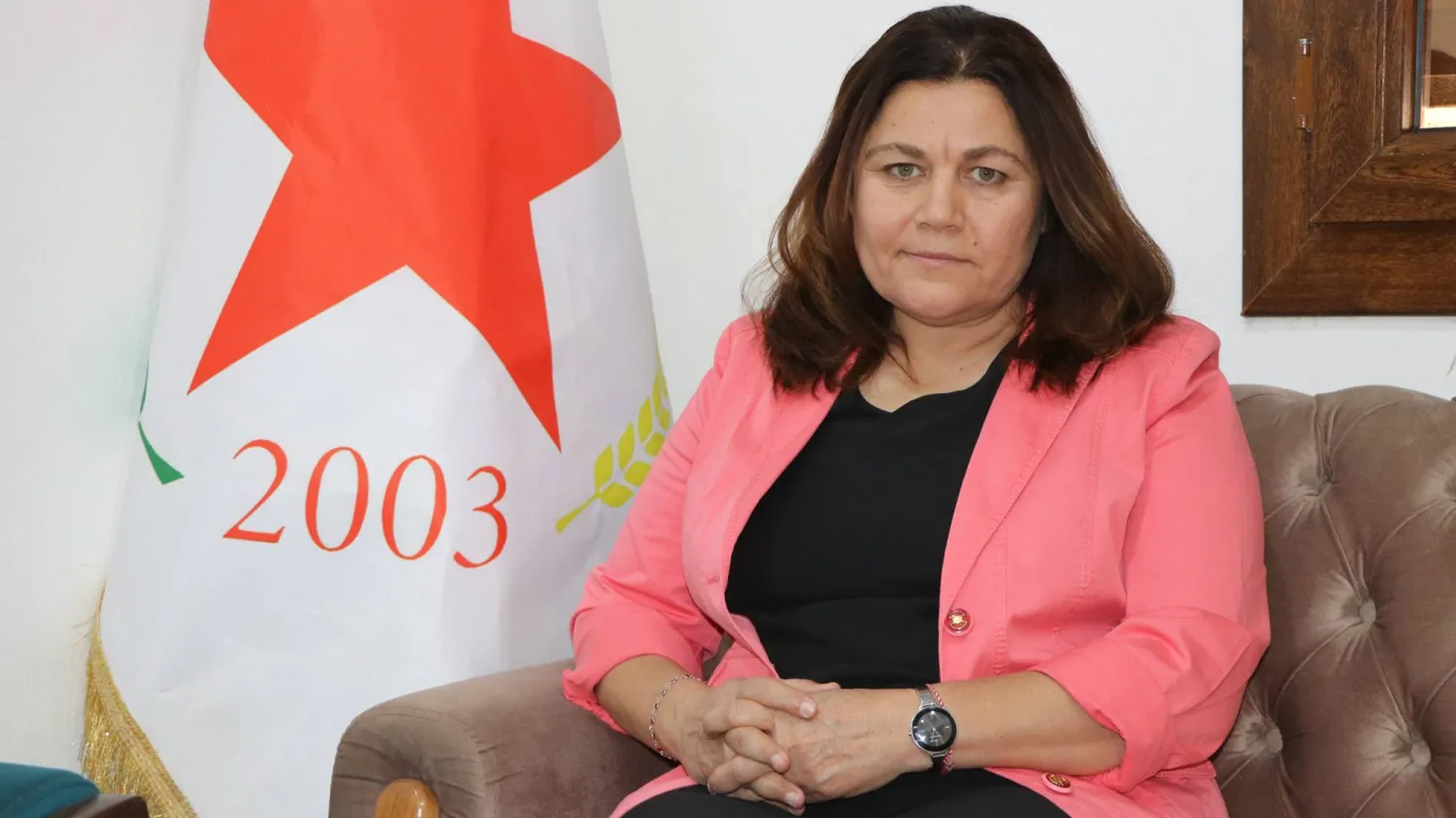Foza Youssef| We Proposed Parliamentary Inclusion and Voiced Reservations over the Constitutional Declaration
PYD's Foza Youssef revealed Kurdish-Syrian talks focused on parliament participation & constitutional reforms. Committees will form post-Eid to integrate DAANES institutions, with SDF playing key military role. Disputes remain over decentralization & exams.

By Ahora Qadi
ERBIL (Kurdistan24) - Foza Youssef, head of the Kurdish delegation and Co-leader in the Democratic Union Party (PYD), confirmed in an interview with Asharq al-Awsat that Kurdish representatives raised two key points during their latest talks with Syrian government officials in Damascus: participation in the Syrian parliament and objections to the current draft of the constitutional declaration.
The early June meeting, described as “historic,” brought together senior officials from the transitional Syrian government and the Democratic Autonomous Administration of North and East Syria (DAANES), under the framework of the March 2025 agreement signed between Interim president Ahmad al-Sharaa and Syrian Democratic Forces (SDF) Commander Mazloum Abdi, under U.S. auspices.
Subcommittees to be Formed after Eid
Youssef revealed that both sides agreed to establish subcommittees in multiple sectors following Eid al-Adha. “We reached consensus on forming specialized committees under a central committee to address the broad range of issues requiring expert coordination, to ensure a common vision for integrating the DAANES into Syria’s state structure,” she said.
The proposed committees will handle administrative, educational, military, and security matters. Among them is an administrative committee to guide the incorporation of DAANES institutions and personnel, and an education committee to facilitate the integration of schools and student certification into the national education system. A third committee will explore the integration of military and internal security forces into the Ministries of Defense and Interior, with additional committees to be determined as needed.
Youssef stressed that the DAANES territories, spanning parts of Aleppo, Deir ez-Zor, Raqqa, and Hasakah, will lead the transitional phase. She explained: “Our understanding of integration is different from Damascus’s. The government seems to interpret integration as the dissolution of the autonomous administration and disbanding of its military forces. For us, integration means our institutions remain active during this transitional phase and eventually become part of the future Syrian state.”
SDF Must Have a Leadership Role in Syria's New Army
Highlighting the importance of SDF's institutional experience, Youssef said the SDF should play a leading role in the future Syrian army. “This force, trained and equipped by the U.S.-led coalition, is disciplined, effective, and has proven itself in defending Syria’s borders and local communities,” she affirmed. She added that the government delegation demonstrated seriousness about the agreement and acknowledged that the non-engagement between the SDF and regime forces is a “strategic choice” vital to building a unified and sovereign Syrian state.
Reservations on the Constitutional Declaration
One of the delegation’s main concerns, Youssef revealed, was the constitutional declaration proposed by the government. “The declaration entrenches centralism,” she said, “and must be reformulated to ensure fair power distribution, political freedoms, and the recognition of all Syrian components’ rights under a democratic and decentralized governance model.”
The Kurdish delegation also expressed support for decentralization, emphasizing that their presence in Damascus is itself a powerful statement against separation. “We are part of Syria,” Youssef stressed, “and decentralization does not contradict unity. Syria’s ethnic, religious, and cultural diversity should be constitutionally acknowledged.”
Disputes over Timeline, Exam Crisis Still Unresolved
Although the agreement envisioned completion by the end of 2025, Youssef warned that some files require more time. “Integrating military forces scattered over a third of Syria’s geography and resolving the prison and camp issues cannot happen overnight,” she said.
She also criticized the government for its failure to follow through on resolving the school exam crisis. “Thousands of students face an uncertain future. Despite initial promises, no official mechanism has been issued,” Youssef said.
Oil Fields, Economic Talks to Follow
Youssef confirmed that committees will also address economic matters, including the future of oil and gas fields. The SDF currently controls nearly 85% of Syria’s oil resources and 45% of its gas production, including key sites like al-Omar and al-Tanak in Deir ez-Zor.
Next Steps: Parliament Participation and Dialogue Continuation
Youssef confirmed that the Kurdish delegation had initiated discussions about representation in the new Syrian parliament, with formal consultations expected after Eid. “We brought up participation in parliament, decentralization, and the constitutional declaration,” she said. “The meeting was preliminary, and in the next round we’ll enter deeper, technical discussions.”
She concluded by reaffirming the DAANES’s openness to dialogue. “We are ready for meaningful talks and are waiting for the government to set a date to resume negotiations and commence committee work.”
